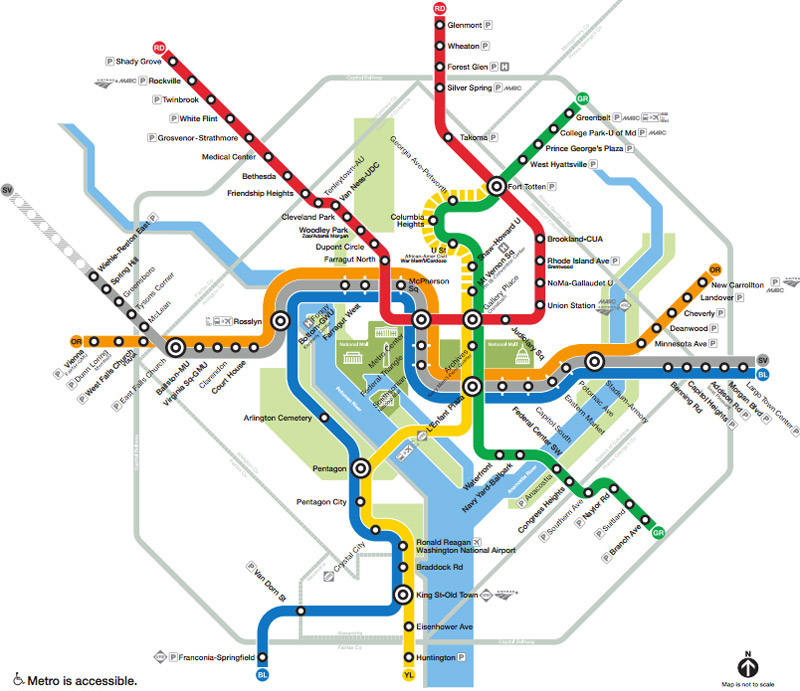Welcome to DU!
The truly grassroots left-of-center political community where regular people, not algorithms, drive the discussions and set the standards.
Join the community:
Create a free account
Support DU (and get rid of ads!):
Become a Star Member
Latest Breaking News
Editorials & Other Articles
General Discussion
The DU Lounge
All Forums
Issue Forums
Culture Forums
Alliance Forums
Region Forums
Support Forums
Help & Search
Lessons from Washington Metro, America's Last Great Subway System

Lessons from Washington Metro, America’s Last Great Subway System
Highway construction was at its peak when the nation’s capital conceived and built one of the most comprehensive rapid transit systems in modern America. Zachary Schrag explains how and why it happened.
Jan. 7, 2022 • Jake Blumgart
(Governing) The Washington Metropolitan Area Transit Authority (Metro) is simultaneously a deeply impressive piece of infrastructure and a perennial frustration for residents of the nation’s capital.
Washingtonians will be forgiven for focusing on the system’s flaws in recent months, as hundreds of rail cars were taken off line to deal with a structural issue that resulted in a train derailment. Reduced service on Metro rail will now be matched by reduced service on its buses, as the new COVID-19 wave infects many transit workers.
All of this has frustrated Metro watchers in the wake of a historic regional policy initiative to secure funding from the jumble of jurisdictions that the agency serves. The fact that Maryland, Virginia, and the District of Columbia all began rowing in the same direction was a serious win, which made the latest safety screw up all the more frustrating.
But the ups and downs of Metro have been with the agency from its earliest days, as George Mason University Professor Zachary Schrag documented in his 2006 book The Great Society Subway. Governing talked with him about what sets Metro apart from other American transit agencies, how it revived downtown Washington, and whether America could ever build a public transportation system as ambitious again.
....(snip)....
Governing: Do you think a system that was built so specifically for commuters can retool itself to have less emphasis on nine-to-five after the rise of remote work? Or could Metro become a less important part of the region?
Schrag: I'm getting a little bit out of my lane. As a historian, we prefer to look backward. But certainly, the COVID-19 numbers are shocking. Ridership on Metro just plummeted starting in March 2020, and now it serves a fraction of the people it used to. The fact is that any technology is optimized for certain needs. What heavy rail is really, really good at is getting a lot of people to the same place at the same time. Much better than trying to use a freeway for that.
If we think about some of the pre-COVID challenges of Metro, there was ongoing debate about late night hours. The trade-off is it would be nice to have a system that runs late so if people are at a sports game or want to stay up late, especially drinking, you don't want them driving home. It's nice to have a system stay open for them. But the fact is relatively few people are needing to ride the system at 11 p.m. Those hours might be better used for maintenance, rather than for operations. Even before the pandemic, Metro's managers were struggling to figure out how to serve those nonrush hour needs. That's going to be all the more challenging as patterns of work change. ..............(more)
https://www.governing.com/community/lessons-from-washington-metro-americas-last-great-subway-system
1 replies
 = new reply since forum marked as read
Highlight:
NoneDon't highlight anything
5 newestHighlight 5 most recent replies
= new reply since forum marked as read
Highlight:
NoneDon't highlight anything
5 newestHighlight 5 most recent replies
Lessons from Washington Metro, America's Last Great Subway System (Original Post)
marmar
Jan 2022
OP
50 Shades Of Blue
(10,899 posts)1. K & R! Thanks!